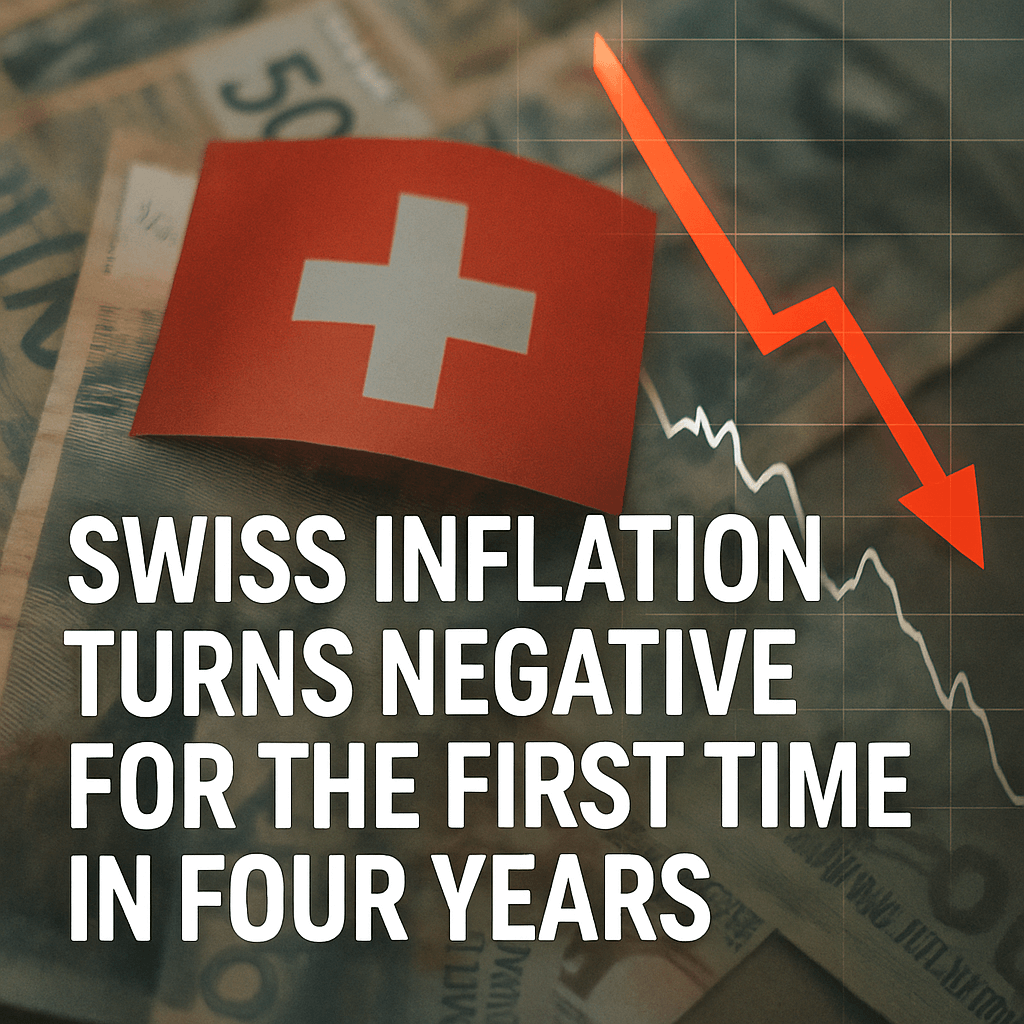Swiss Inflation Turns Negative for the First Time in Four Years

The inflation rate in Switzerland experienced a notable shift in May 2023, turning negative for the first time since early 2021. The latest figures from the Swiss Federal Statistical Office indicate that consumer prices have fallen by 0.1% compared to the same period last year. This development marks a decrease from a flat rate of zero in April and aligns closely with expectations set forth in a Bloomberg survey of economists.
Factors Contributing to Disinflation
The decline in inflation can be attributed primarily to the strengthening of the Swiss franc, which has significantly reduced the cost of imported goods. The resulting lower import prices have contributed to a historical trend of negative foreign price contribution to domestic inflation over several months. Some of the noteworthy drop-offs in consumer prices were observed in areas such as:
- Heating Oil: A major contributor to price decline, resulting from a decrease in global oil prices amid softer demand.
- Air Transport: The reduction in operational costs coupled with increased competition has made airfare more affordable, effectively lowering overall transport costs.
On the other hand, rising costs in rents and certain fruit and vegetable categories counterbalanced some of these price reductions, according to the statistical office’s report. The core inflation rate—which excludes volatile items such as fresh and seasonal products as well as energy—slowed to 0.5%, further indicating a shift in price dynamics.
Implications for Monetary Policy
The Swiss National Bank (SNB) faces mounting pressure from these recent figures to reconsider its monetary policy stance, with a widely anticipated interest rate cut set for June 19. Presently, a 25 basis-point reduction is fully priced into the market, following a series of previous cuts that totaled 150 basis points. Should this widely expected decrease materialize, it would bring the benchmark interest rate to zero, marking a significant milestone in Swiss monetary policy.
Recent statements from key figures such as SNB President Martin Schlegel emphasize a cautious stance. He noted that while individual months of negative inflation may occur, they should not necessarily prompt immediate policy actions from the central bank.
“Our focus is not on the current rate of inflation, but rather on price stability over the medium term,” said Schlegel in a recent address.
Expert Opinions and Outlook
Market analysts and economists are opining that the SNB could potentially revisit a position of negative interest rates if deflationary pressures persist. However, most forecast that such a drastic measure will not be implemented during the upcoming meeting. This perspective is buttressed by the broader economic context in the euro area, where inflation remains substantially higher—reportedly around 2% in May, indicating a stark contrast in economic conditions between Switzerland and its neighbors.
Historically, Switzerland has seen four significant periods of negative inflation since the 2008 financial crisis, with the central bank’s target inflation range set ambitiously between 0% and 2%. As analysts review current trends, the prospect of prolonged disinflation could pose challenges not just for monetary policy but also for the Swiss economy’s growth prospects.
Comparative Analysis: Euro Area vs. Swiss Inflation
The divergence between Swiss inflation rates and those of neighboring countries highlights important geopolitical and economic dynamics. While Switzerland’s inflation rate is experiencing disinflation, the euro area shows stronger consumer price growth. Such discrepancies raise questions about the relationships between various European economies, especially in terms of trade-deficits and fiscal policies.
“As the ECB navigates its monetary tightening measures, the Swiss banking system must remain vigilant against emerging inflation trends,” stated London-based economist Fiona Harlow.
In summary, current economic indicators suggest a complex interplay of factors influencing inflation in Switzerland, and the resulting implications for monetary policy warrant close observation leading up to the SNB’s upcoming meeting.